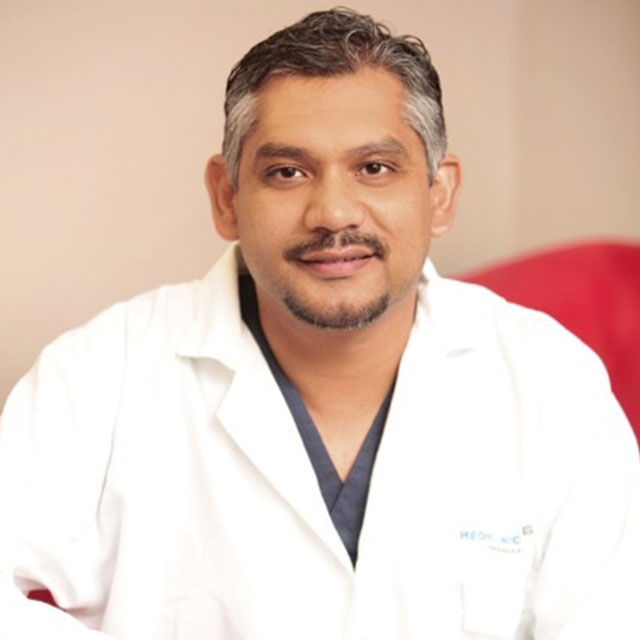
Dr Razeen Gopal has just returned from a humanitarian mission in Dakar where 18 young patients with life-threatening arrhythmias (Wolf Parkinson White syndrome) were treated with radio-frequency ablation and basic conventional mapping.
Closer to home, he and his team at the Cape Town Atrial Fibrillation (AF) Centre are also nearing another major milestone, with nearly 600 patients so far having successfully undergone their revolutionary cryoballoon catheter ablations.
“A cryoballoon ablation is a procedure where intense cold energy is delivered via pores and jets strategically located on a spherical balloon,” the former Stellenbosch University (SU) graduate explains.
“In addition to being cheap, effective, quick and safe, the procedure has the added advantage of hardly, if ever, causing additional rhythm disturbances as a consequence of lesion formation.”
Razeen made news in 2016 when he implanted the first subcutaneous shock device — also known as a subcutaneous cardioverter defibrillator (S-ICD) — into a patient in Africa.
“The EMBLEM S-ICD System is the first and only FDA-approved product with both the device and the leads inserted beneath the skin, without going through any veins or even touching the heart at all.
“This leaves the heart and blood vessels untouched, and so provides a safer alternative to conventional implantable defibrillators without the complications associated with cardiac wires.”
Earlier this year Razeen again made news when he performed the first proctor-guided series of implants — a newly accepted technique or modality of pacing the heart artificially, but in the most physiological manner to date — in Africa.
Asked when and how he ended up in the professional field, he reveals his father was a general practitioner and that he grew up in a home filled with empathy for the infirm, and those with afflictions as a result of it.
“I grew to love cardiology specifically during my residency as an internist. Aside for the fact that the heart lent itself to fascinating analysis, whether physical or metaphysical, another aspect of cardiac management that I feel attracts so many to this line of work, is often the ability to affect patients prognosis and outcomes, mostly for the better, in a very short space of time.”
He says he also spends a considerable amount of time following his passion for teaching. “This includes the direct mentoring/proctoring of device implantation and ablation therapies locally and abroad.”
He tries to remain empathetic and professional when interacting with patients, so as to remain as focused and impartial during what is often instantaneous life-saving calls.
“In general, though, I find myself having a healthy and harmonic rapport with the patients as far as possible. My work is often and for the most part curative. The patient therefore benefits markedly, having access to this degree of super specialisation, skill and expertise.
“I find this incredibly rewarding and gratifying, in what often may end up being an extremely noble, but thankless profession.”
- By Steyn du Toit -